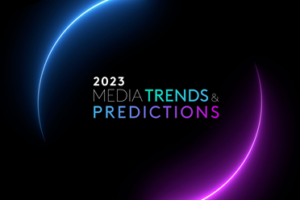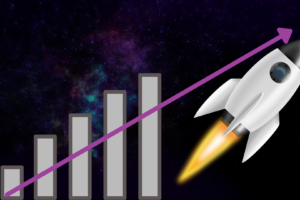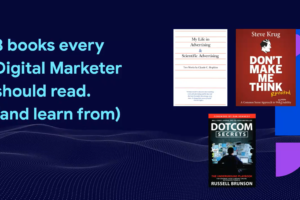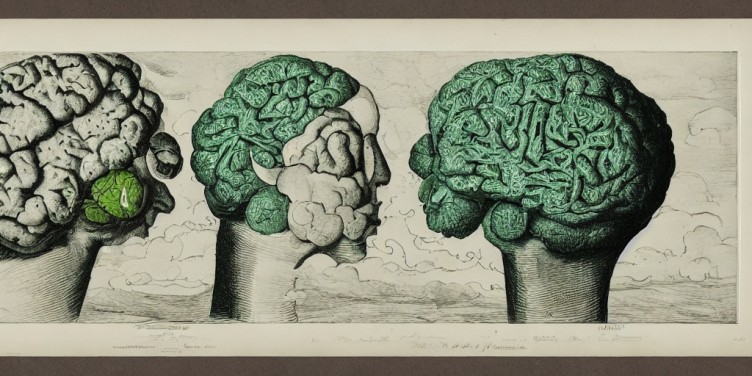Here’s what you need to know about the difference between a pro digital marketer and an enthusiast.
Often, people confuse the actual digital marketing concepts with the advertising aspect of digital marketing. Digital marketing is used to support the growth of a business with the promotion of products or services to a target audience. Like traditional marketing, Digital marketing is a systematic process for creating, communicating, and delivering value to attract and retain customers. Therefore, advertising is only one aspect of digital marketing. Digital Marketing is a fast-paced and ever-changing industry, with modern technologies and innovations emerging every day. It’s important for the whole digital community, people and companies, to stay on top of the latest trends in order to get ahead and stay ahead.
I beg this article readers to don’t get me wrong, the core focus of this article is to help enlighten the concept and shape a better understanding of the topic, as well as build better digital marketers. Although this may feel like it, in the end, one wolf is not the entire pack.
The main task of advertising is to attract the attention of consumers and inform them about the benefits of your product or service. It can be used to build brand awareness, increase sales, and create loyalty among customers.
Digital marketing is a complex process that includes distinct types of activities. It includes paid advertising, SEO, email marketing, social media content creation and management, influencer marketing, content marketing, design, ABM, multiple platforms, analytics, data, client-agency relationship management, vendor management, and much more, combined with traditional marketing. The main ingredient in this recipe – and not considered by many enthusiasts – is how to get to these tactics: Planning.
What differentiates a neo-self-called-digital-marketer-enthusiast from a pro digital marketer, is the marketing itself. Although both generate results, one is ephemeral, quick, short-term, and non-solid. While the other is based on research, study, analysis, historical data/information, middle to long-term goals, and strategies, which leads to solid results that last. The difference between these two types of marketers resides in planning. One type is a self-proclaimed digital marketer who doesn’t actually know what they are doing; the other is someone who understands the entire marketing process holistically.
Planning leads to better execution, therefore, better execution leads to better results. Then planning changes, the whole course of the strategy and tactics.
Digital marketing and traditional marketing are soul mates, and the gist has the same roots.
Digital marketing and traditional marketing are soul mates, and the gist has the same roots. However, there are differences between them that complete each other. Digital marketing is a perfect blend of traditional marketing and digital technology. It is an umbrella term that includes all activities that use digital channels to promote or sell products or services.
One passes the ball to the other. What I have seen in companies I worked for is that traditional marketing takes care of the responsibility of the Marketing Plan structure, but most of the research information and data comes from digital, thanks to the analytics tools, detailed reporting, and all the data generated on the web. The execution is a coordinated operation, one providing intelligence to the other, it became more efficient to design buyer personas, build audiences, and target niches thanks to the powerful tracking coming from the digital. It all extends to the traditional, but the beaconing is performed by the traditional. Some strategies don’t allow digital to support traditional, like in-person events, print material, sales print collaterals, and other strictly traditional-non-digital activities and material. Hopefully, it stays that way!
I have outlined a variety of ways that digital marketing is used, to show how far-reaching it can go beyond just advertising.
Digital marketing is not about advertising; it is about communicating.
Digital marketing is not about advertising; it is about communicating. It is a highly effective method of communication that can be used to build the brand, drive sales and deliver value to customers.
To deliver value, we first need to generate it. To generate value, we need to understand how people behave and what they want. We need to know how they think and how we can influence their decisions. Once we have this information, we can create content that helps people make better decisions.
This is where the art of marketing comes in. It is a science that helps us understand how people behave, what they want, and how we can influence their decisions. It uses the power of data to create content that meets the needs of your audience. To make it simple, you need to understand your customer’s problems and desires so well that you can provide them with solutions before they even know they have a problem.
If you can do this, then you will be able to create content that keeps people engaged and excited about what you offer. This is the real power behind marketing: it helps people make better decisions and learn more about their needs so they can make informed choices. If you advertise and call yourself a digital marketer, you might be surprised to hear that it’s not the same way consumers are viewing things. Consumers want you to sell them something, but they do not want advertisements. Advertising will always exist, but it is no longer working as a marketing strategy.
Helping shape better digital marketers
The digital marketing industry is booming and many digital marketing professionals are making a lot of money. It’s a tough business, but with some help from the right tools, it doesn’t have to be impossible.
Digital marketing is a complex field. It takes time to master, and even then, you will never know everything. That’s why it’s important that you find a mentor who can help you improve your skillset.
Here are some tips on how to find and work with a digital marketing mentor:
Find someone who has many years of experience. You don’t have to work with someone who has been in the industry for decades, but you should look for someone who has at least five years of experience in digital marketing. This will give them enough time to get a feel for what works and what doesn’t, which is invaluable when it comes to creating successful campaigns.
Look for someone who has worked in multiple industries or verticals before they became an expert in their current field (e.g., health care). Studying different types of businesses will give them a better understanding of how to run their own company.
Ask around for recommendations from people in your network (friends, colleagues) who may have used the services of this person before or know someone else who did. If they have valuable experience working with this person, chances are he or she will be able to help you out as well!
The good news is that there are plenty of tools out there that can help you build your business and your skills.
Here are some of my favorites:
1. HubSpot: This is one of my favorite tools because it allows you to manage all aspects of your digital marketing strategy in one place. You can use it to create landing pages, track sales, create email campaigns, and much more.
2. SEM Rush: If you want to get serious about SEO and PPC management then this tool is for you! SEM Rush has some excellent features like keyword research and backlink analysis which will help you improve your content so that it ranks higher on search engines.
3. Ahrefs: is another great tool for keyword research, but it also has features such as backlink tracking which allows you to see how other sites are linking back to yours (and whether those links are good or bad). This information will help you decide what keywords you want to focus on when creating content for
If you want more useful tools, feel free to get in touch with me.
Remember, digital marketing is not just a job; it’s a strategy.
Digital marketing is not a one-man game. Sure, you can do it on your own if you want, but it will take you forever and the results will be less than optimal—professional digital marketers know that consistency is what drives long-term results. You need people to guide your strategy if you want to ensure that everything works smoothly and effectively. Overanalyzing every move will make successful digital marketing way more complicated than it needs to be. Remember: digital marketing is something you enter into for a long-term commitment, so make sure you’re confident in your resources before diving into it.

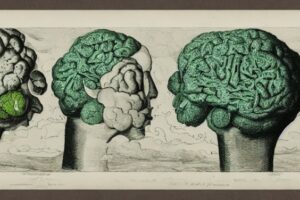
![Deconstructing to [re]Construct Illustration by Pietro Botelho](https://digitalasitis.com/wp-content/uploads/2022/11/1593435939368-300x200.jpeg)
